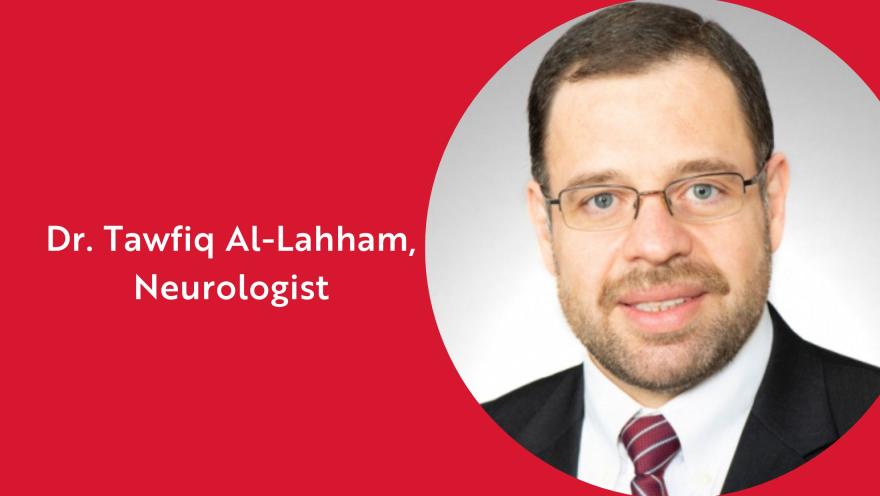Expanding access to multidisciplinary care is critical to making ALS a livable disease for everyone, everywhere until a cure is found. Expanding our network of certified centers, treatment centers and affiliated clinics is just one way we’re working to make that happen.
Dr. Tawfiq Al-Lahham is a neurologist with a subspeciality in neuromuscular medicine. The focus of his practice is working with people living with ALS and their families, providing comprehensive management and searching for new treatments for the disease.
In July 2020, he joined the ALS clinic team as the director at the University of Pittsburgh Medical Center where he had completed a fellowship years ago. “We have been expanding our services to ALS people and families in Western Pennsylvania, providing the best and accessible care to our diagnostic center, multidisciplinary team, and clinical trials,” he said.
The clinic’s dedicated team includes a physical therapist, occupational therapist, respiratory therapist, swallowing therapist, speech therapist, nutritionist, social worker, neuropsychologist, nurse, research coordinator, and clinic navigator. “With our team-approach, we provide individualized comprehensive care,” Dr. Al-Lahham said.
To become certified they had to meet The ALS Association's clinical care and treatment standards based on AAN Practice Parameters, a critical practice ensuring the most comprehensive care for people with ALS and their families. “We are helping patients and their families from diagnosis through their entire journey and participating in ALS-related research in search of new effective treatments,” he said. “And I’m proud to say we were recently accepted into their nationwide network.”
Dr. Al-Lahham and his team, like many other multidisciplinary care teams around the country, are working every day to provide critical ALS care for those living with the disease and their families and searching for treatments and one day a cure. And while he admits it seems we are still too far away, he says they’ve built many reasons for hope, something they strive to do every day for the families they serve.
“Patients have hope because they know they are never alone. There’s a team of dedicated, caring people who make a difficult diagnosis easier to manage,” he shared. “Families have hope because they have education and support. Our team is determined to make sure life with ALS continues to have purpose and quality.”
When asked what gives him hope, he said, “I have hope because I see progress. I see passionate people sharing what we know and working together to make ALS a livable disease. That’s the power of hope. That’s the power of partnership.”
Stay up to date on the latest information about ALS care, disease management and resources to by subscribing to our quarterly e-newsletter, Care Matters.
To learn more about the disease and follow stories about people living with ALS in the community, subscribe to receive our weekly blogs in your inbox HERE or follow us at als.org/blog.


Join the conversation. Please comment below.